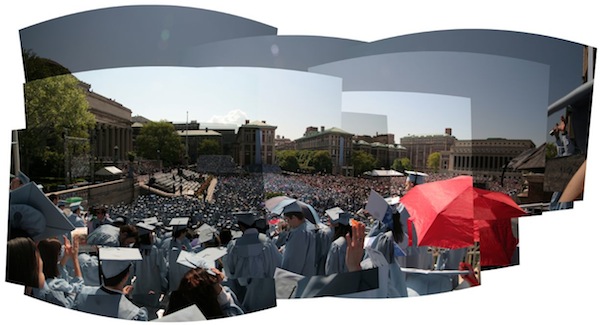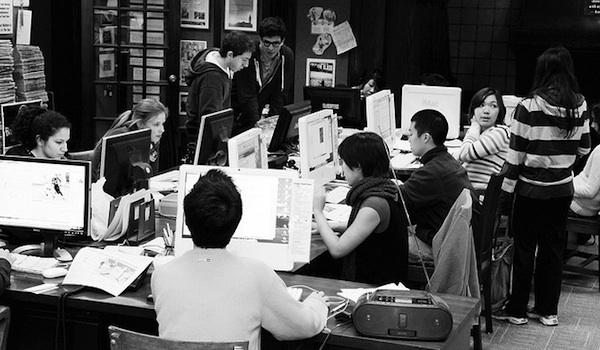Back to School: The Evolution of Journalism Education
It’s the start of the 2012-13 school year, which means students are returning to journalism programs around the country. As the media industry continues to evolve, how well is new talent being trained, and how well are schools preparing them for the real world? We asked an array of people — hiring editors, recent graduates, professors, technologists, deans — to evaluate the job j-schools are doing and to offer ideas for how they might improve.

Miranda MulliganSeptember 5, 2012
The executive director of Northwestern’s Knight News Innovation Lab says j-schools need to teach students to be open-minded about their skills — and that means learning at least the basics of programming.

Bill GrueskinSeptember 5, 2012
In the rush to build up training for digital skills, some journalism schools have asked students to go wide instead of deep, argues the dean of academic affairs of Columbia’s j-school.

Brian BoyerSeptember 7, 2012
Boyer, the head of NPR’s news apps team, puts on his professor hat and offers a syllabus for “making useful things for people.”

Eric NewtonSeptember 10, 2012
The Knight Foundation’s Newton says “universities must be willing to destroy and recreate themselves to be part of the future of news.”

Geneva OverholserSeptember 11, 2012
The USC professor says journalism schools should become “lively centers of campus – and of community – life.”

Leonard Downie Jr.September 12, 2012
Journalism students are best served when they actually produce serious, real-world work, the former Washington Post editor argues. But many journalism schools aren’t set up for that.

Meredith ArtleySeptember 13, 2012
The managing editor of CNN’s digital operations says coding and multimedia skills are becoming more common among new hires, but that specialized knowledge is getting hard to find.

Journalism school students often choose the field because they like writing. So getting them to code requires more than instruction — it takes convincing. Mindy McAdams

Jeff JarvisSeptember 18, 2012
One-size-fits-all classes don’t work in an environment where students’ digital skills are so uneven. And journalism schools should be looking to serve the world beyond those who pay tuition.

Steve ButtrySeptember 19, 2012
“The choice for student media is simple: Slide into irrelevancy even faster than professional media that fail to adapt, or race into the digital future and help show them the way.”

USC’s Hernandez says students should bypass the normal route and “hijack your school’s assets to selfishly improve your skills.” Robert Hernandez

John WihbeySeptember 26, 2012
Journalism schools need to take better advantage of the rest of their universities, teaching students to engage with scholarship.

Dan GillmorSeptember 27, 2012
Engaging more with the rest of the university is one way j-schools can gain relevance.

“We are just at the beginning of understanding what the digital media curriculum of the future will look like. But we can’t let the constraints of accreditation and untrained faculty slow us down.” Cindy Royal

Robert SteinerOctober 16, 2012
What if, instead of turning journalists into experts, you focused on turning experts into journalists?













